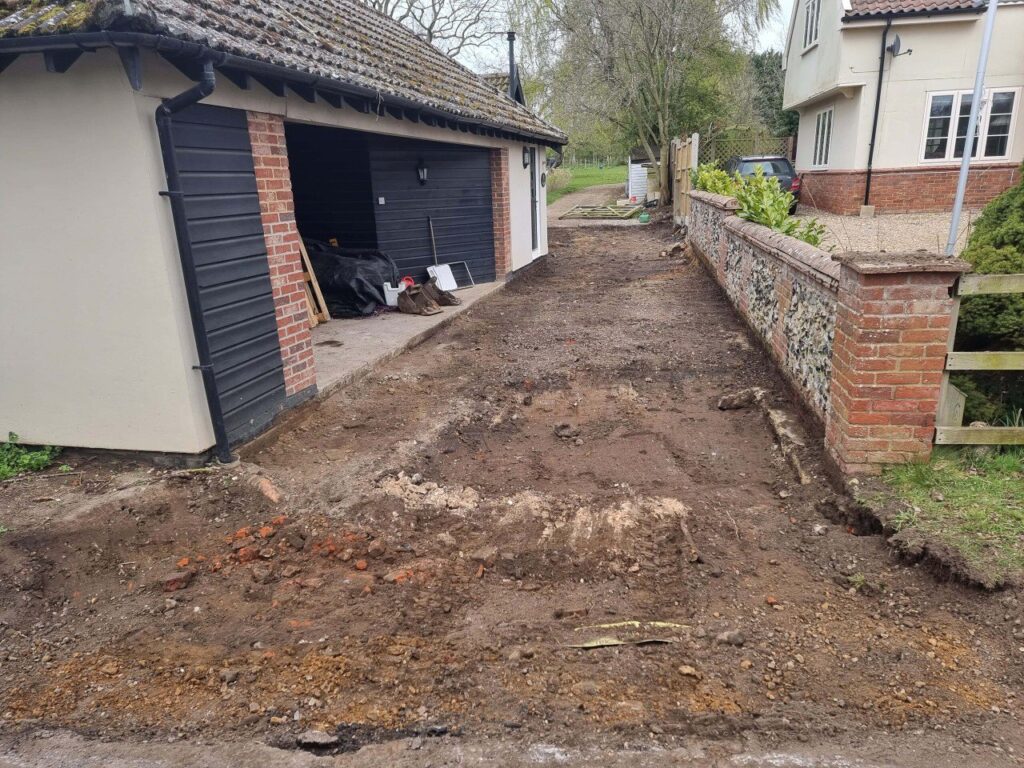Paving the Way: Durable Tarmac for Agricultural and Farm Roads
Agricultural and farm roads play a crucial role in supporting the daily operations of rural businesses, providing access for heavy machinery, livestock transportation, and regular vehicle traffic. With these roads enduring constant wear and exposure to the elements, it’s essential to use a surface that can withstand the demands of the environment. Tarmac has emerged as one of the most durable and cost-effective solutions for farm and agricultural roads in areas like Ascot, Berkshire.
In this article, we’ll discuss the benefits of using tarmac for agricultural roads, why it’s a reliable solution, and how professional installation can provide long-term value for your property.
Why Farm and Agricultural Roads Require Strong Surfaces
Farm roads are subject to unique challenges that set them apart from typical domestic or urban surfaces. Without proper surfacing, these roads can quickly deteriorate, leading to significant costs and inefficiencies.
1. Heavy Loads
Agricultural roads must accommodate heavy machinery, tractors, and delivery vehicles. Uneven or poorly surfaced roads can cause damage to equipment and slow down operations.
2. Weather Conditions
Rain, frost, and varying temperatures can take their toll on farm roads, causing potholes, cracks, and surface erosion. Tarmac provides the strength and weather resistance necessary to withstand these conditions.
3. Frequent Usage
Unlike decorative driveways, agricultural roads experience consistent use, meaning they require a durable material capable of handling long-term wear without constant repairs.
The Benefits of Tarmac for Agricultural Roads
Tarmac, also known as tarmacadam, is a highly versatile and robust surface that has become the go-to choice for farm and agricultural roadways. Its combination of strength, affordability, and low maintenance makes it ideal for rural environments.
1. Durability Under Heavy Use
Tarmac can withstand the weight of agricultural machinery and vehicles without deteriorating quickly. Its smooth yet sturdy finish reduces the likelihood of potholes and uneven surfaces forming under pressure.
2. Weather Resistance
Tarmac is designed to cope with the UK’s variable climate. It performs exceptionally well in both wet and dry conditions, with minimal risk of cracking during frosts or heavy rainfall. This durability ensures year-round usability, even during challenging weather.
3. Cost-Effective Solution
Compared to other road surfaces like concrete, tarmac offers a cost-effective solution for large-scale agricultural roads. Its affordability doesn’t compromise on quality, making it ideal for farm owners looking for value without sacrificing performance.
4. Quick Installation
Tarmac roads can be installed efficiently with minimal disruption to your farming operations. The material sets quickly, meaning the roads can be used shortly after installation.
5. Low Maintenance Requirements
Once installed, tarmac requires very little maintenance to keep it in excellent condition. Minor cracks or wear can be repaired easily and cost-effectively, reducing long-term upkeep costs.
6. Smooth and Safe Surfaces
Tarmac provides a smooth, even finish that reduces the risk of damage to farm vehicles and machinery. It also improves traction, ensuring safe travel for vehicles and livestock transport in all weather conditions.
Applications of Tarmac in Agricultural Settings
Tarmac is highly versatile and suitable for various areas within agricultural and rural properties.
Farm Roads
Tarmac provides reliable access roads for farms, improving connectivity between fields, barns, and other facilities.
Livestock Transport Routes
Smooth tarmac surfaces make it easier and safer to transport livestock, reducing stress on animals and preventing potential injuries caused by uneven ground.
Yard and Storage Areas
Tarmac is an excellent option for farmyards, grain storage areas, and equipment parking zones, providing a stable and level surface that can support heavy loads.
Field Access Routes
Well-laid tarmac roads make field access more efficient, especially during wet or muddy seasons, ensuring work can continue without disruption.
Why Professional Installation Matters
The longevity and performance of a tarmac road depend significantly on the quality of its installation. Professional contractors have the expertise, equipment, and knowledge to deliver results that meet the specific needs of agricultural settings.
Key Steps in Professional Tarmac Installation
- Site Assessment: Understanding the terrain and usage requirements to determine the ideal thickness and base for the tarmac.
- Ground Preparation: Proper levelling, compacting, and drainage preparation to ensure a solid foundation.
- High-Quality Materials: Use of premium tarmac to achieve a durable and smooth surface.
- Attention to Detail: Ensuring edges, joints, and gradients are expertly finished to prevent water pooling or erosion.
By working with experienced professionals, farm owners can trust that their tarmac roads will offer long-term durability and reliability.
Conclusion
Tarmac is the ideal solution for agricultural and farm roads in Ascot, Berkshire, offering durability, affordability, and year-round weather resistance. Whether you need reliable access routes, storage areas, or yard surfaces, tarmac provides a strong and practical foundation to support the demands of modern farming operations.
If you’re considering upgrading your farm roads, NS Driveways Ascot specialises in high-quality tarmac solutions tailored to agricultural needs. Contact us today to learn more about how we can help you pave the way for smoother, safer, and more efficient farm operations.
Call us on: 01344 951 398
Click here to find out more about NS Driveways Ascot
Click here to complete our contact form and see how we can help with your driveway needs.

